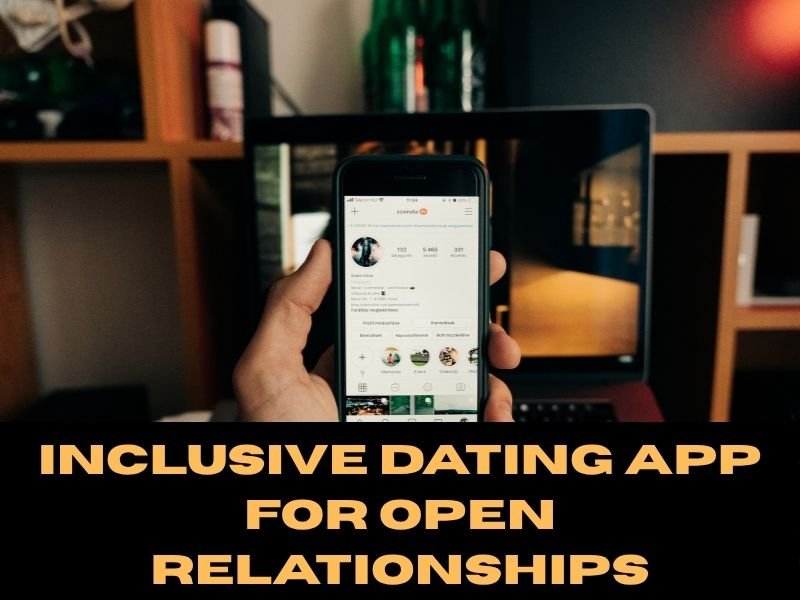Every successful relationship stands on more than just a feeling of love and romantic desires; it grows above just chemistry and admiration, but a deeper sense of compatibility, communication, and, in a higher stance, the ability to grow together. A successful relationship depends largely on setting boundaries, having mutual respect, and developing behaviors, as these will help your relationship navigate through challenges and build deeper intimacy. That is why modern dating rules for a stronger and healthier love life are necessary; they serve as a foundational tool for a strong and healthy relationship.
They are not laid down rules but are seen as a foundation to understanding and promoting emotional connection that will, in turn, create productive communication and prevent unnecessary misunderstandings. And so whether you are newly dating or years in a committed relationship, this set of right rules can help you both feel valued, heard, and loved, and will increase intimacy in your relationship.
In this article, we will explore 27 modern relationship guides that will help new couples or long-standing couples understand the need to lay down rules that will work for them in their relationship. These rules are not one-size-fits-all; they are adaptable, actionable, and designed to support healthy, lasting love. Let’s begin, shall we?
Why Modern Dating Rules Matter In Your Relationship

While relationships are deeply personal, the problems many couples encounter often look surprisingly similar: lack of communication, disloyalty, emotional distance, or simply growing apart, and eventually separation and divorce. Relationship rules act as proactive tools, a framework that helps couples avoid conflict, deepen mutual connection, and navigate challenges with more grace.
This is why rules matter. They are there to ensure that even though we are bound to have misunderstandings in our relationships, it will not lead to any of those as mentioned earlier.
They Create a Shared Understanding
When both partners are clear about what’s important in the relationship, it removes guesswork. You are not assuming how the other person feels because you are communicating it directly and respectfully.
They Build Emotional Safety
Knowing your partner values the same things as honesty, affection, and respect will build trust. This is because emotional safety allows both of you to open up without fear of being judged or dismissed.
They Prevent Small Problems from Growing
Rules around things like resolving arguments calmly or maintaining physical affection help reduce misunderstandings. These rules don’t eliminate conflict; they make it more manageable.
They Encourage Growth Individually and Together
Healthy relationships aren’t about losing your identity. Setting boundaries and agreeing on personal space or growth goals can strengthen the bond between you.
They Keep Love Intentional
Love doesn’t thrive on autopilot. Relationship rules are like reminders to stay conscious and intentional about how you love each other daily. Rules don’t restrict love. They give it direction.
How To Set Relationship Rules That Work
Setting relationship rules isn’t about being controlling or rigid; it is about mutual respect and clarity. When done in the right manner, it will create a safe space for both partners to express their needs, values, and expectations.
Here’s how to create effective, healthy relationship rules:
Start Early, But Naturally
While it’s not necessary to present a “rule list” on the first date, conversations about values and boundaries should begin as your connection deepens. Yes, start with topics like trust, communication style, or exclusivity. Use moments of vulnerability or conflict as opportunities to align on expectations.
Make It a Two-Way Conversation
Rules should never feel one-sided. This is why, rather than saying, “You are not allowed to…”, try, “How do you feel about…?” Remember, the goal is collaboration, not domination and certainly not manipulation. You do not want your partner thinking in this direction.
Example: “I feel hurt when my texts go unanswered for hours. Can we talk about how we stay in touch during busy days?”
Use “I” Statements, Not Accusations
Frame your concerns in a way that focuses on your feelings and needs, rather than blaming your partner.
Say this: “I feel disconnected when we go days without you checking in. You know how important your texts are to always uplift my soul daily.”
Not this: “You never talk to me!”
Keep Rules Flexible
Your relationship will grow and evolve, and so should your rules. What worked when you were dating casually may not apply if you are moving in together or starting a family, or are married. Revisit your rules during life transitions: new jobs, living situations, parenting, etc.
Write Them Down (If It Helps You Both)
Some couples find it helpful to jot down their key relationship principles. It doesn’t have to be formal, just something to reflect on or revisit when tensions rise.
Focus on Shared Values Over Specific Behaviors
For example, rather than saying, “We must text every 2 hours,” agree on the value of “staying emotionally connected throughout the day.”
Twenty-seven Essential Dating & Relationship Rules Every Couple Should Follow
These rules are grouped by theme to make them easier to follow and apply. Whether you are in a new relationship or a long-term commitment, these guidelines help you grow stronger as a couple, emotionally, physically, and mentally.
The core foundations of a healthy relationship are listed below as follows:
Prioritize Your Relationship Above Distractions
Work, social media, and daily stress can eat away at your connection. Make your relationship a conscious priority, not just when things go wrong.
Always Be Honest Even When It’s Risky
Truth builds trust. Whether it’s about how you are feeling, your finances, or your past, honest communication leads to emotional intimacy. Research has shown that the most common mistake partners make is that they often say what the other person wants to hear, so that they can get what they want. Understand that even though this might work for the time being, it will harm your relationship in the long run. Always tell the truth, communicate it clearly, and don’t hold back any information.
Communicate to Understand, Not Just to Respond
Real communication is about listening, not waiting for your turn to talk. Remember, for your communication to be productive, it needs to be communicated clearly. If your aim of communicating is just to win, it will lead to more arguments, divisions, and hurt feelings. So, when communicating, pay attention to your partner, ensure they indeed understand the meaning of what you are talking about. Also, when listening, constantly let your partner know that you truly understand what they are communicating about. Ask questions, reflect feelings, and seek clarity, not just victory in an argument.
Learn To Apologize Sincerely, And Forgive Freely
Understand that saying “I’m sorry” doesn’t make you weak. It shows emotional maturity. Likewise, forgiving doesn’t mean forgetting, but it does mean releasing resentment. Don’t just say you are sorry, give them reassurances that you will make efforts not to hurt them again, and if in doubt, ask them, “What can I do to make things right?” Learning to apologize to your partner is the first step to having a successful relationship.
Emotional & Mental Intimacy Rules
Share Vulnerabilities Without Fear
Being emotionally open deepens your connection. Talk about your fears, your past, your dreams. Create space for both joy and pain.
Encourage Each Other’s Growth
Your partner isn’t meant to complete you; they are meant to grow alongside you. Support their ambitions, healing, and evolution.
Compliment More Than You Criticize
Positive reinforcement works wonders. Make it a habit to point out what you love and appreciate, even for small things.
Learn And Understand Your Partner’s Love Language
 Gary Smalley, in his book The Language of Love, lists the five languages of love. In other words, there are five unique ways individuals want to be loved, and if we express love in ways they do not want to be loved, then they are not going to feel appreciated. Gary mentions the languages as words, gifts, actions, physical attraction, and time. Speaking your partner’s love language makes them feel seen and valued, and easy to be loved.
Gary Smalley, in his book The Language of Love, lists the five languages of love. In other words, there are five unique ways individuals want to be loved, and if we express love in ways they do not want to be loved, then they are not going to feel appreciated. Gary mentions the languages as words, gifts, actions, physical attraction, and time. Speaking your partner’s love language makes them feel seen and valued, and easy to be loved.
Practice Daily Empathy
Before reacting, ask: “How might they be feeling?” Seeing things from their perspective changes the entire tone of a conversation. Understanding the other person’s feelings is love, even when you do not agree with them or feel them as intensely as they may.
Physical Affection & Sexual Health
Keeping Physical Affection Alive, or maintaining the intimacy that caused both of you to be in a relationship together in the first place, is one of the tasks couples find difficult to do. This is why couples who constantly build intimacy will often have a lasting relationship. A partner’s looks can either build up the other partner’s pride or bring it to the ground.
Talk Openly About Sexual Needs
Communication is vital. An expert tells us that the greatest challenge that partners have with sexual intimacy is not the mechanics, looks, or how often they engage in sexual intimacy. The biggest problem is often a lack of communication. Understand that the human brain is the part of the body that controls the feeling of pleasure, and therefore, if the brain is not sexually stimulated, then other parts of the body cannot act effectively. This is why you must communicate openly and clearly about sex. Don’t assume that your partner knows everything. Ask. Be curious and respectful about your partner’s desires, boundaries, and comfort levels.
Be Open to Growth in the Bedroom
Shame, guilt, fear of being embarrassed, and ignorance often limit us from growing sexually intimate with our partner. Understand that it is common for your partner’s sexual needs and desires to change over time. Keep exploring and learning together. Be honest about what works and what doesn’t. I am going to share a couple of ideas with you that will help you and your partner grow sexually intimate:
“Tell me how I can please you in bed, so I will know what to do and expect when we make love.”
“Please be kind and gentle to me; this will make it easier for me to desire and embrace whatever you want us to do together sexually.”
“Please be patient with me while I am learning all the new ideas you are bringing to our relationship.”
Never Use Sex as a Weapon or Reward
Sex should never be used for control or manipulation because it is a form of connection and is meant to provide pleasure, not currency. Therefore, only by mutual consent and for a short period should sex between you and your partner be interrupted, and for unselfish reasons requiring medical attention and incapacity.
Practice Good Hygiene and Mutual Consent
Respect and pleasure go hand-in-hand. Prioritize consent, cleanliness, and care in every intimate moment. The absence of good hygiene will leave you with no time to develop intimacy or desire. This includes your lack of ability to be creative, to experiment, or to seek ways to please each other sexually. Ensure you do not get overwhelmed in activities like work, games, hobbies, and parenting, as these will leave you with no time to cultivate intimacy with your partner.
Daily Habits That Strengthen Bonds

Check In With Each Other Regularly
A quick “How’s your day going?” can go a long way. Emotional check-ins help prevent disconnection and keep the lines of communication open.
Create Relationship Rituals
Weekly date nights, morning coffee together, or a goodnight text—small, consistent habits can become the glue of long-term love.
Celebrate Small Wins Together
Whether it’s a promotion, completing a goal, or just surviving a hard week, celebrate each other’s victories. Joy shared is joy multiplied.
Handle Conflict Privately and Respectfully
Never tear each other down in public. Disagreements are inevitable, but shaming your partner only damages trust.
Balance Togetherness and Independence
You don’t have to do everything together. Healthy relationships include time apart to grow, reflect, and maintain personal identity.
Boundaries, Space, and Trust
Allow Each Other Personal Space
Everyone needs time to recharge alone. Respect your partner’s need for solitude because it is not rejection, it’s self-care.
Build Trust by Being Transparent, Not Controlling
Trust isn’t built by checking phones or demanding constant updates. It comes from consistency, honesty, and reliability.
Support Time With Friends and Family
Encouraging a healthy social life outside the relationship reduces pressure and enhances personal well-being.
Take Accountability for Mistakes
When you mess up, own it. Avoid defensiveness. Accountability builds maturity and respect.
Keep Your Promises, Even the Small Ones
Whether it’s showing up on time or remembering an anniversary, following through builds trust and shows care.
These 27 rules aren’t about being perfect. They are about being intentional and choosing every day to act in ways that nurture connection, trust, and love.
Expert Tips for Keeping These Rules Alive
Having relationship rules is only the beginning. The real challenge? Maintaining them, especially when life gets hectic, stress creeps in, or emotions run high.
Here’s how to keep your relationship rules from becoming forgotten promises:
Schedule Monthly or Quarterly Check-Ins
Set aside time to reflect on your relationship. Ask each other:
“What’s working well?”
“Is there anything we need to improve or adjust?”
These check-ins don’t have to be formal, but they should be intentional. Use them to celebrate wins and tweak anything that’s off track.
Use a Shared Journal or App
If you are both the reflective type, keep a shared digital or physical journal. Write down:
Positive moments
Frustrations (without blame)
Relationship goals
Apps like Lasting, Paired, or even shared notes on your phone can help keep communication flowing.
Create “Connection Rituals”
Routine creates rhythm. Whether it’s:
A no-phone dinner each night
Sending a midday check-in text
Saying one thing you are grateful for before bed
These tiny habits reinforce your bond daily, even during busy seasons.
Revisit Your Rules After Big Life Events
Major transitions like moving in together, having kids, or starting new jobs can shift dynamics. Reevaluate your relationship rules when:
Your routines change
You notice more frequent arguments
One or both of you feel distant
Think of it like updating your GPS after a detour; you’re still heading in the same direction, just taking a better route.
Celebrate Progress, Not Perfection
No couple sticks to every rule perfectly. That’s okay. What matters is the commitment to keep growing and returning to each other, even when things get messy. The healthiest couples aren’t flawless; they are flexible, forgiving, and focused on growth.
What Not to Do in a Relationship
Sometimes, it’s not just about what you do, it’s also about what you avoid. Even the strongest couples can fall into bad habits that slowly erode trust, connection, and intimacy.
Here are some common pitfalls to steer clear of:
Don’t Dismiss Your Partner’s Feelings
Saying things like “You are overreacting” or “That’s not a big deal” shuts down emotional safety. Always validate their feelings, even if you don’t fully understand them.
Avoid Passive-Aggressive Behavior
Silent treatment, sarcasm, or guilt-tripping are emotional landmines. Be direct and kind. Say what you mean instead of punishing your partner with silence or subtle digs.
Don’t Keep Score
Relationships aren’t a competition. Saying “I did this, so you owe me that” builds resentment. Love thrives on generosity, not transaction.
Never Argue to “Win”
If you win the argument but damage your partner’s heart, you both lose. Focus on resolving the issue, not proving who’s right.
Don’t Let Resentment Fester
Small annoyances become huge problems if ignored. Address concerns early, with calm honesty, before they spiral into bitterness.
Don’t Criticize in Public
Public embarrassment breaks trust. If something’s bothering you, bring it up in private, never in front of friends, family, or online.
Don’t Pretend Everything’s Fine When It’s Not
Suppressed emotions don’t disappear; they build up and explode. It’s okay to not be okay. Talk about it. Be real.
By avoiding these behaviors, you create space for trust, vulnerability, and real connection. Your relationship becomes a place of emotional safety, not stress.
Real-Life Examples: Couples Who Set Relationship Rules That Work
Understanding theory is great, but seeing how real couples implement relationship rules can make the ideas stick. That is why I have decided to share a real-life experience of couples I interacted with about their challenges and how making rules helped them overcome and remain in love for life. Here are a few examples inspired by common experiences:
Prioritizing Communication During Busy Seasons
Sarah and James both live in Washington and have demanding jobs. When James was promoted, their quality time dwindled. They agreed on a simple rule: “No work talk after 8 PM” to preserve their evenings for connection.
This small boundary helped them recharge emotionally and prevented work stress from bleeding into their relationship.
Giving Space Without Feeling Distant
Mia values alone time to recharge, while Carlos loves socializing. Early in their relationship, they set a rule to “honor solo days” without guilt.
By respecting each other’s needs, they feel closer and more fulfilled, not trapped or neglected.
Using Humor to Diffuse Conflict
Priya tends to get stressed in arguments, while Rahul likes to keep things light. They created a rule to “pause and joke” if things got too heated.
This doesn’t mean ignoring serious issues, but it helps reset tense moments and reminds them they’re a team, not opponents.
Being Honest About Their Finances
Money stress is a common relationship challenge. Ava and Leo agreed early on to “hold monthly money meetings” where they openly discussed budgets and goals.
This rule prevents surprises and keeps them aligned on financial decisions, key to reducing tension.
Key Takeaway
Every couple’s rules will look different. What matters is intentionality and mutual respect. When both partners feel heard and valued, love thrives.
Conclusion
Building a healthy relationship doesn’t just happen by accident; it takes conscious and intentional efforts to build. This can happen if both parties involved are open to trusting each other, therefore setting and honoring thoughtful relationship rules, which will create a safe and loving space where both partners can thrive. Remember, the best rules are flexible, compassionate, and evolve with your journey together.
Keeping an open communication, respecting each other’s individuality, and never underestimating the power of kindness and laughter. With these foundations, your relationship can weather life’s ups and downs and grow into something truly beautiful.
Thank you for reading! If you found this helpful, share it with someone you love or bookmark it for when you need a reminder of how to nurture your relationship.
FAQs
What are the most important dating relationship rules?
The most important rules are honesty, communication, respect, emotional safety, and personal boundaries. Prioritizing connection over control, and love over ego, lays a strong foundation for any relationship.
Should couples set relationship rules early on?
Yes, especially around core values like exclusivity, communication style, and personal boundaries. Early clarity prevents future misunderstandings and helps you both feel secure and seen.
Are relationship rules the same for every couple?
Not at all. The best rules are custom–tailored based on each partner’s needs, love languages, values, and life experiences. What works for one couple may not work for another, and that’s okay.
Can setting rules feel too formal or restrictive?
Not if done with love and mutual respect. Relationship rules aren’t laws; they are agreements that help both partners feel safe, valued, and connected. When approached with kindness, they are empowering, not limiting.
What if my partner doesn’t want to follow any “rules”?
Try shifting the language from “rules” to “shared values” or “relationship agreements.” Ask them what a healthy, happy relationship looks like to them. Often, they do have boundaries; they just don’t label them as rules.
Can rules prevent cheating or betrayal?
No rule can completely guarantee loyalty, but rules about communication, honesty, and emotional connection can reduce the risk of betrayal by keeping the relationship strong and emotionally fulfilling.
How often should couples revisit their relationship rules?
At least once every 5–9 months, or after major life changes (like moving in together, having kids, or shifting careers). Relationships evolve, and your agreements should too.







